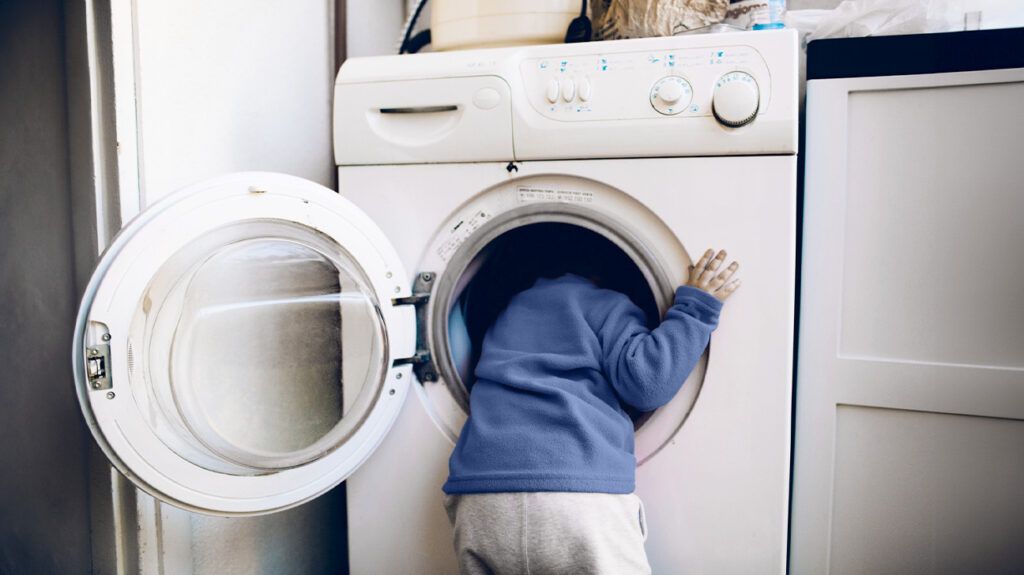Some research suggests hard water may play a role in the development of eczema in the early stages of a person’s life. However, studies investigating this topic are limited.
Eczema, or atopic dermatitis, is an inflammatory condition that causes itchy and dry patches on a person’s skin.
Hard water refers to water that contains a high level of minerals. Hard and soft water supplies vary across the United States, with some areas having more access to harder or softer water than others.
This article explores the link between hard water and eczema. It also discusses eczema treatment and answers common questions about the condition and hard water.
Eczema resources
Visit our dedicated hub for more research-backed information and in-depth resources on eczema.

Hard water contains a high level of minerals, particularly magnesium and calcium. A person living in a hard water area may notice a residue of a compound called calcium carbonate on items in dishwashers. This compound can reduce the life of machinery and clog pipes.
People need to note that hard water may provide some benefits. For example, by drinking hard tap water, individuals may better maintain their levels of dietary calcium and magnesium, helping meet daily recommended intakes.
However, certain research has supported the idea that living in a hard water area increases the risk of developing eczema as an infant.
A
According to the 2021 meta-analysis above, the evidence does not suggest that using a domestic water softener lowers the severity of eczema symptoms. Many people use domestic water softeners to treat hard water to remove some mineral content.
Learn more about the health benefits of mineral water.
What does hard water do to the skin?
A 2018 study highlighted the possible effect of certain deposits from soaps, known as surfactants, on skin barrier effectiveness. These do not dissolve as well in hard water as in soft water. In the study, deposits of a surfactant called sodium lauryl sulfate increased moisture loss from the skin as well as signs of irritation.
While the underlying causes of eczema are unclear, people with the condition may have more gaps in their skin barrier that let moisture leave and allow irritants and infections to enter more easily. As hard water damages the skin barrier, this may explain the associated increase in the risk of developing eczema for those living in hard water areas.
- improve skin moisture
- reduce inflammation of the skin
- soothe itching
- improve healing
- prevent infection
- reduce the risk of symptom flares
A dermatologist might recommend:
- moisturizing creams
- corticosteroid creams and ointments
- topical phosphodiesterase-4 inhibitors, such as crisabarole (Eucarisa)
- topical calcineurin inhibitors, such as tacrolimus ointment
- biologic medication injections, such as dupilumab (Dupixent)
- oral medications that reduce immune activity in people with more severe eczema, including Janus kinase (JAK) inhibitors
Changes to a person’s skin care and bathing routine might also soothe symptoms and prevent flares. These changes may include the following:
- bathing in lukewarm water to prevent excessive drying
- taking only one bath per day
- using unscented bar soaps or soap-free cleansers to reduce exposure to irritants
- patting the skin until it dries after bathing
- using a moisturizer to seal in water
- not letting the skin become too dry before applying moisturizer
- avoiding the use of lotions with high alcohol or water content
- avoiding clothes comprising rough materials, such as wool
Stress may also be a trigger for eczema flare-ups, so a person may wish to try relaxation techniques, such as deep breathing, yoga, and meditation, to reduce the effects of stress. Maintaining a stable room temperature might also limit flares.
Some people may choose to install water softeners, which can remove some of the mineral content in hard water. A study from 2018 concluded that using an ion-exchange water softener might prevent the development of eczema in infants, but further research is necessary.
In contrast, a 2021 meta-analysis found
Below are answers to common questions about hard water and eczema.
Does hard water worsen dermatitis?
Some studies suggest hard water may contribute to the development of eczema in some infants.
Additionally, hard water may damage the skin barrier. As people with eczema may have more gaps in their skin barrier, exposure to hard water may further increase their risk of infection or allow more irritants to enter deeper layers of their skin.
Is soft water better for eczema?
There is no evidence that using domestic water softeners reduces eczema severity in those who already have the condition, according to a
Can hard water cause itchy skin?
By potentially contributing to eczema development in some infants, hard water exposure may cause itchy skin. However, no research has directly linked hard water and itchy skin.
Some research suggests that hard water
However, researchers argue that further studies into the relationship between eczema and hard water are necessary.
A person with eczema should speak with a doctor about which treatments or lifestyle modifications may work best to prevent symptom flare-ups.
